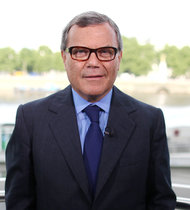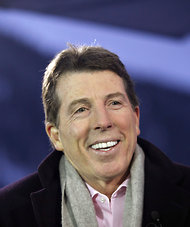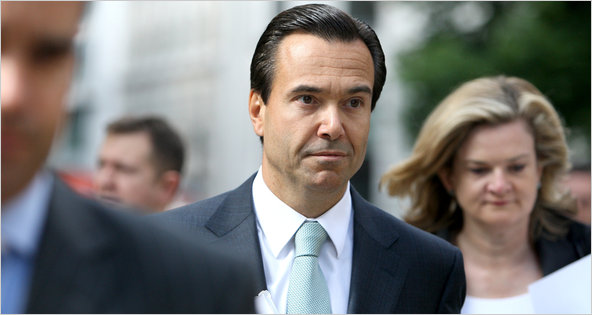LONDON – Barry Tootell, the chief executive of the British lender Co-Operative Banking Group, resigned on Friday, less than a month after the firm failed to acquire part of the branch network of a local rival, Lloyds Banking Group.
Mr. Tootell’s resignation also comes as the credit rating agency Moody’s Investors Service cut Co-Operative Bank’s rating to junk status on fears that the British bank may suffer future losses from a growing level of delinquent loans.
The ratings agency said that Co-Operative Bank’s core Tier 1 ratio, a measure of a bank’s ability to weather financial shocks, was significantly lower than its British competitors, and the bank also remained exposed to faltering real estate loans.
“We are disappointed by the ratings downgrade announced by Moody’s,” Co-Operative Bank said in a statement on Friday. “We have a strong funding profile and high levels of liquidity, which are significantly above the regulatory requirements.”
Revolving Door
View all posts
The bank, however, acknowledged that it needed to raise more capital. British regulators announced this year that the country’s largest financial institutions needed to increase their cash reserves by a combined £25 billion, or $38 billion, by the end of the year.
The Co-Operative Bank has been on the back foot since it announced last month that it would not buy about 630 branches from Lloyds in a potential deal, which had dragged on for more than a year.
The British lender said it had walked away from the acquisition because of weakness in the local economy that would make it difficult to generate suitable returns, according to Peter Marks, the outgoing chief executive of the bank’s parent, the Co-operative Group, which operates a range of businesses including supermarkets and funeral homes.
Mr. Tootell, the head of Co-Operative’s banking unit, will be replaced by Rod Bulmer, who joined the bank six years ago after holding a senior position at the British division of the Spanish bank Santander.
Article source: http://dealbook.nytimes.com/2013/05/10/chief-of-british-lender-quits/?partner=rss&emc=rss




